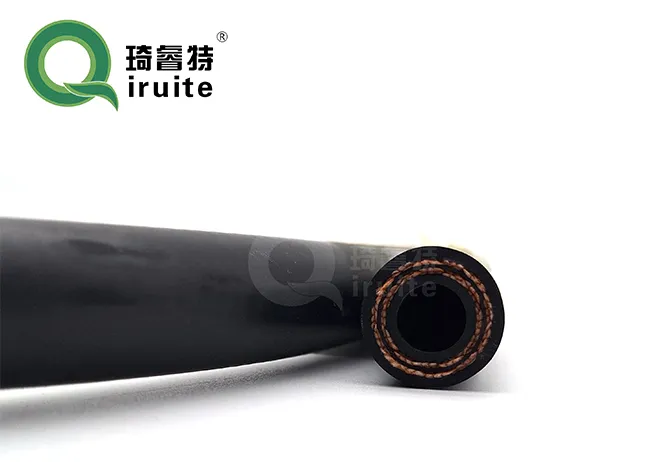hydraulic hose guards
The Importance of Hydraulic Hose Guards
Hydraulic systems are integral to many industries, from construction and manufacturing to agriculture and automotive applications. Their efficiency and effectiveness often rely on the robustness of the system's components, particularly hydraulic hoses. However, these hoses are susceptible to a variety of environmental hazards. To mitigate risks associated with hose wear and tear, hydraulic hose guards play a crucial role. This article explores the significance of hydraulic hose guards, their types, and their benefits.
What are Hydraulic Hose Guards?
Hydraulic hose guards are protective coverings designed to shield hydraulic hoses from damage. These guards can be made from various materials, including rubber, nylon, or other synthetic compounds, and they come in multiple designs tailored for different applications. The primary function of hose guards is to protect the hoses from physical damage, environmental factors, and chemical exposure that could compromise their integrity.
Types of Hydraulic Hose Guards
1. Sleeve Guards These are tubular covers made from durable materials that fit directly over the hoses. They are designed to protect against abrasion and can withstand high temperatures. Sleeve guards are commonly used in applications where hoses may rub against rough surfaces or other components.
2. Spring Guards Spring guards consist of coiled metal or plastic sheaths that wrap around the hoses. They are particularly effective in environments where hoses are exposed to sharp edges or may experience severe bending forces. The spring-like design allows for flexibility while providing excellent protection.
3. Heat Shields These guards are specifically designed to protect hoses from extreme heat, whether from engine compartments or other high-temperature areas. Heat shields are often made from materials that can withstand high temperatures while preventing heat transfer to the hoses.
4. Cable Ties and Straps While not traditional guards, durable straps and ties can help secure hoses in place, reducing movement and thereby minimizing the risk of damage. By preventing hoses from rubbing against one another or other objects, these accessories play an essential role in maintenance.
hydraulic hose guards

Benefits of Using Hydraulic Hose Guards
1. Enhanced Durability Hose guards significantly extend the lifespan of hydraulic hoses. By protecting them from abrasion, cuts, and impacts, owners can avoid costly replacements and downtime associated with hose failure.
2. Increased Safety Damaged hydraulic hoses can lead to leaks, which pose a serious safety hazard. High-pressure fluid leaks can cause accidents or injury to workers. By keeping hoses protected, hose guards contribute to a safer workplace environment.
3. Cost Efficiency Investing in hose guards can result in significant long-term savings. Replacing hoses frequently due to wear can be expensive, not only in terms of the parts themselves but also the labor costs associated with repairs. Maintaining hoses with guards can lead to lower maintenance costs overall.
4. Weather Resistance Certain hose guards are designed to withstand harsh weather conditions, including UV exposure and chemical spills. This resilience can be particularly important for outdoor applications where hoses are exposed to the elements.
5. Improved Performance Properly protected hydraulic hoses maintain their operational efficiency. Guards help ensure that pressure is sustained, and hoses function optimally without unnecessary leakage or failure.
Conclusion
Hydraulic hose guards are vital components in the maintenance and safety of hydraulic systems. Their ability to protect hoses from physical damage, environmental factors, and chemical exposure makes them indispensable in various industries. The investment in high-quality hydraulic hose guards not only enhances the durability and performance of hydraulic hoses but also promotes a safer working environment. As technology improves, it is crucial for industries to adopt better protective measures, ensuring that their hydraulic systems remain efficient and reliable for years to come.
-
Ultimate Spiral Protection for Hoses & CablesNewsJun.26,2025
-
The Ultimate Quick-Connect Solutions for Every NeedNewsJun.26,2025
-
SAE J1401 Brake Hose: Reliable Choice for Safe BrakingNewsJun.26,2025
-
Reliable J2064 A/C Hoses for Real-World Cooling NeedsNewsJun.26,2025
-
Heavy-Duty Sewer Jetting Hoses Built to LastNewsJun.26,2025
-
Fix Power Steering Tube Leaks Fast – Durable & Affordable SolutionNewsJun.26,2025

